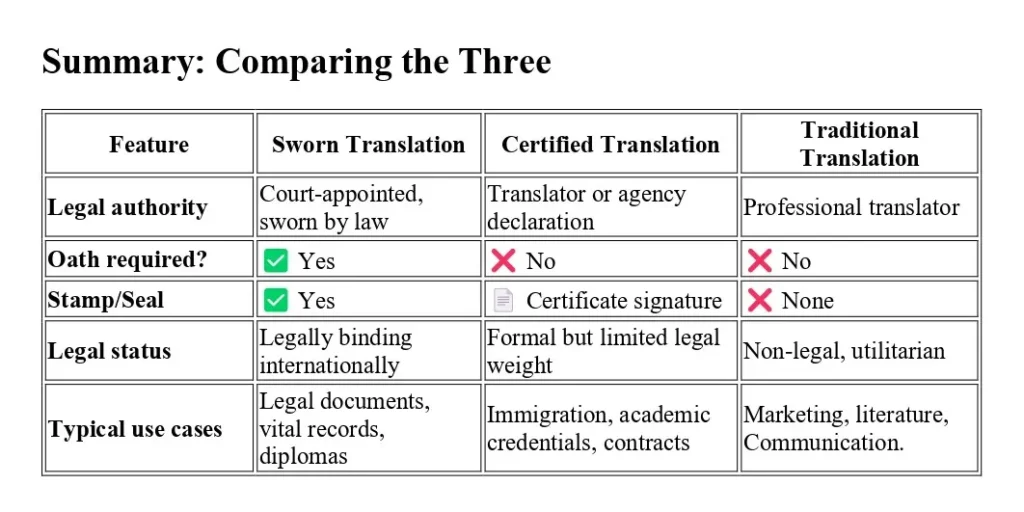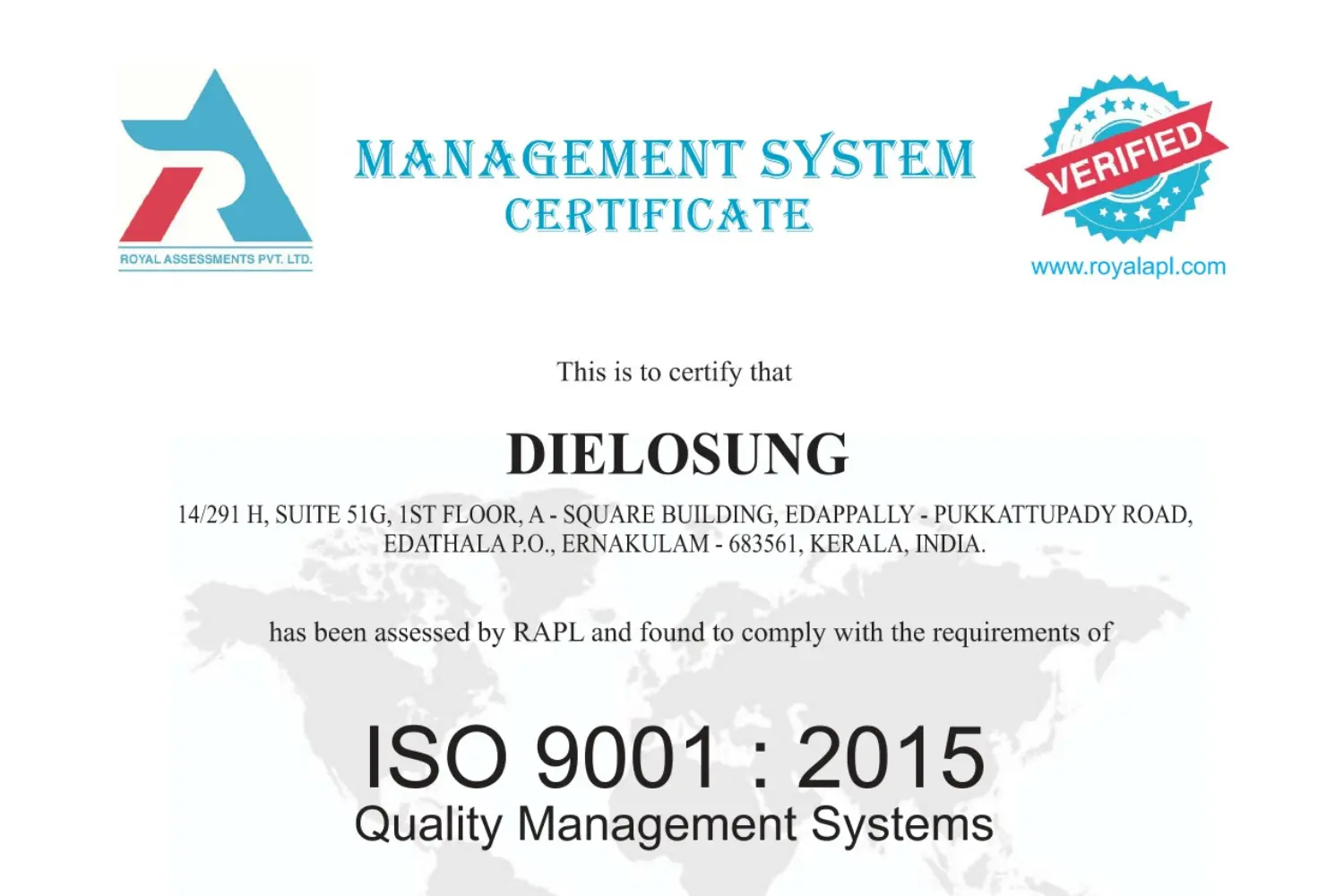When it comes to translating important documents, selecting the right type of translation is crucial to ensure your documents are accepted by authorities or institutions abroad. At DieLösung TranslateGlobe, we often receive questions about the differences between sworn, certified, and traditional translations. Understanding these distinctions will help you avoid costly delays and rejections.
What Is a Sworn Translation?
A sworn translation is a legally binding translation carried out by a translator who has taken an official oath before a court or government authority. These translators are often registered as court experts or public translators and are authorized to certify that the translation is complete and accurate. Sworn translations include an official stamp or seal and a signed declaration that hold legal equivalence in many countries.
Sworn translations are mandatory for official documents submitted abroad, such as:
- Birth certificates
- Marriage and death certificates
- Court and legal documents
- Diplomas and academic transcripts
- Police clearances
Countries like Germany, France, Spain, Belgium, Italy, Brazil, Turkey, and others require sworn translations to ensure full legal validity.
What Is a Certified Translation?
Certified translations are professional translations accompanied by a certificate of accuracy signed by the translator or translation agency. Unlike sworn translations, certified translations do not require the translator to take a legal oath or be appointed by a court. However, they are widely accepted by embassies, universities, government offices, and immigration authorities in countries such as the United States, United Kingdom, Canada, and Australia.
Common uses of certified translations include:
- Visa and immigration applications
- Academic transcripts and diplomas
- Legal contracts and financial documents
Certified translations offer a trusted, professional guarantee of accuracy without the formal court appointment required by sworn translations.
What Is a Traditional (Standard) Translation?
Traditional translations refer to standard translations done by professional linguists but without any official certification or legal binding status. They are used for everyday communication and professional needs that do not require legal recognition.
Examples include:
- Marketing materials
- Business correspondence and reports
- Technical and medical documentation
- Literature and creative writing
Traditional translations provide a flexible and cost-effective solution for non-official documents.

Which One Should You Choose?
- Need full legal equivalence abroad (e.g., submitting to German authorities)? Choose Sworn Translation.
- Applying for visas, studying abroad, or submitting documents to embassies in English-speaking countries? Certified Translation is suitable.
- For marketing materials, emails, or business reports, Traditional Translation is enough.
Pro Tip: Always verify the translation requirements with the receiving institution or authority to avoid delays or document rejection.








